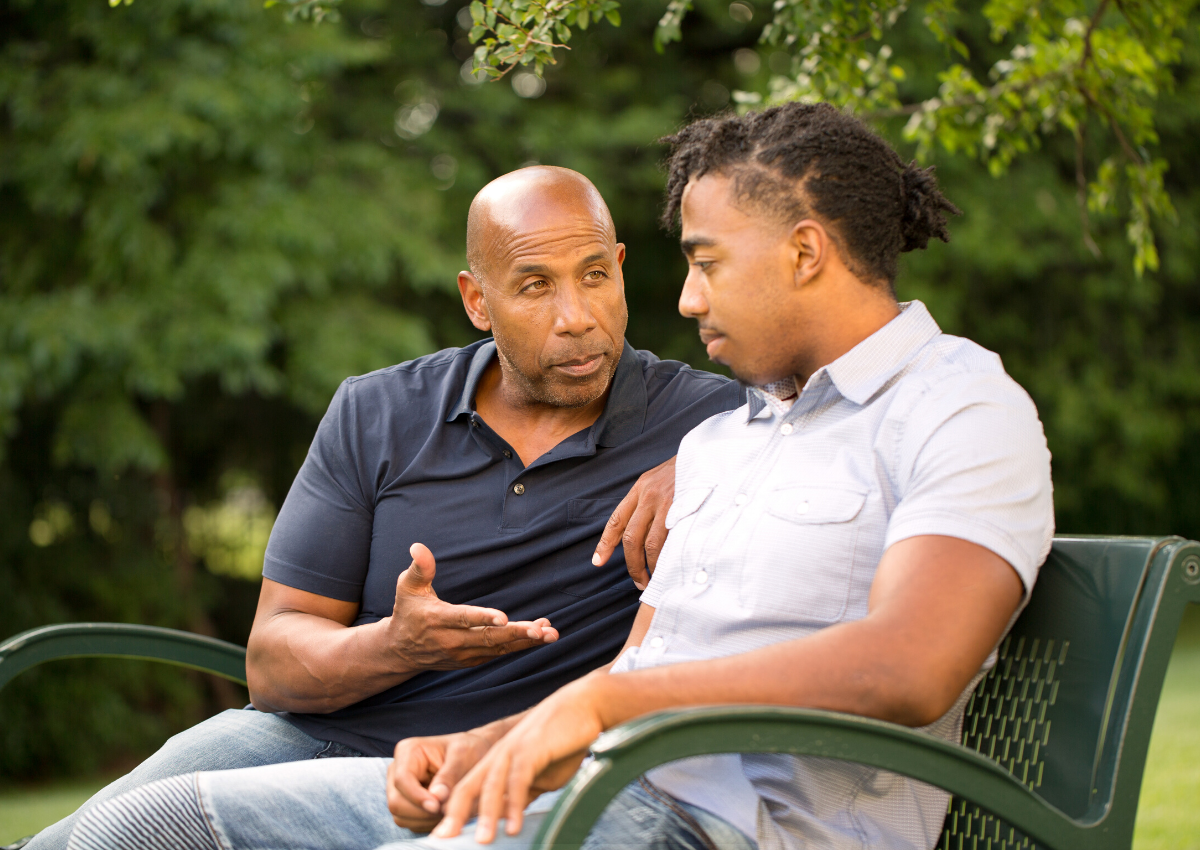
Not Winning Hearts and Minds – Part I
A country that demands moral perfection in its foreign policy will achieve neither perfection nor security. Henry Kissinger The Leaders We Promote Twenty years ago, Jean-Paul Habimana was an aide […]

A teacher affects eternity; he can never tell where his influence stops.
Henry Adams, Historian
Educators absolutely lead students to value others in the course of their every day. However, this isn’t usually the first lens, but a byproduct of curriculum and context. As educators, our lesson plans and practices and mission statements, even our graduation standards, would look different if we saw them primarily as means of developing and measuring our students’ character where academic or athletic skills training were frameworks to facilitate that character development.
Nima Tahai, a Caring School Community program principal explains that “what Caring School Community has provided [her] school is an opportunity to be explicit both with the adults and with the students that this is important – that sitting and talking about how you feel about something, sharing that you’re angry or frustrated and having someone else have an opportunity to say, ‘you know what – I hear what you’re saying and I have felt that too,’ really allows us to be our best selves; allows us to be our best learners, our best friends.” These kinds of engagements are important steps in self-discovery and relationship development. However, they stop so far short of the kind of commitment and discipline required to put an enemy’s, or even a friend’s, interests ahead of our own.

My son’s kindergarten teacher has 28 different imperatives posted on the classroom supply cabinet. They say things like “we will tell the truth,” “we will use our hands in kind ways,” “we will listen when someone is speaking,” “we will put objects where they belong,” “we will use kind words when speaking to friends,” and “we will share our classroom materials.” These all can be summarized as descriptions of ways we care for one another and for things that matter to one another.
Most teachers became teachers because they really did, and still do, want to change the world, one child at a time or one school at a time or through nationwide and global programs and policies. Developing pro-social behaviors and positive communities, teaching respect for self and others, having morning meetings where kids feels safe to share their feelings, calling kids to commit to challenging social and communal goals (not just academic ones), and leading by example are all very important means. The end, however, is my son acknowledging his own sense of loss, but in that instant or soon after it, choosing to advance his classmates interests – deciding to share his favorite toy Monster Truck anyway. It is my daughter seeing another girl getting picked on in the lunch room, but going to help her in spite of knowing the weeks of ridicule that will bring. I hope our children’s teachers will go beyond the logic of the Golden Rule and teach them to share simply because their classmates have intrinsic value at least equal to their own, regardless of what those classmates “might do unto them” in return for our children’s goodwill.
Our nation’s Founding Fathers grasped the importance of an other-oriented citizenry as they envisioned our early Universities. They believed by leading people to lives of service, education would equip them to be free, and thus it deserved to be publicly funded. In 1749, Benjamin Franklin (founder of University of Pennsylvania) published a pamphlet outlining his purpose to build young men who would join “ability with the inclination to serve ‘Mankind, one’s Country, Friends and Family.’” In 1778, Thomas Jefferson (founder of University of Virginia) put forth legislation based on belief that only a broad-based education would allow people to defend themselves against tyranny. John Adams saw it as a public obligation to train a society inclined to serve. There was this consistent belief early in our country’s history that education was necessary to develop in people a value for society and its members as a prerequisite for effective self-government.
Charles Eliot, Harvard’s President for forty years from 1869 to 1909, played an integral role in a subtle shift of this educational focus away from others and toward self. He almost single-handedly redefined higher education in the United States. In an 1885 speech, Eliot outlined the case for our modern day “elective” system that he had pioneered at Harvard: “At eighteen the American boy has passed the age when a compulsory external discipline is useful. A well-instructed youth of eighteen can select for himself…a better course of study than any college faculty, or any wise man…can possibly select for him.” In Fareed Zakaria’s recent book, In Defense of a Liberal Education, he describes Eliot as a devotee of Ralph Waldo Emerson’s theories about Self Reliance. Zakaria describes Eliot’s view “that American liberal education should allow you to choose your own courses, excite your own imagination, and thus realize your distinctive self.” Valuing the individual is the foundation of Justice, but elevating oneself directly opposes the ideals of a liberal education aimed at elevating others.
Yale, Princeton and Harvard were built on the model of thirteenth century English colleges which were founded as schools of divinity. Those bastions of US liberal education originally aligned with Cardinal John Newman’s philosophy of education that “the subject-matter of knowledge is intimately united in itself, as being the acts and the work of the Creator.” Students were expected to take a range of subjects and relate them to one another because it was assumed there was a single, divine intelligence behind all of them. Still today, an emphasis on building character, stemming from the religious origins of colleges, remains an aim of liberal arts colleges almost everywhere, at least in theory. Samuel Morison, the legendary historian of Harvard, saw this in the distinctive benefits of Harvard’s residential setting: “Book learning alone might be got by lectures and reading; but it was only by studying and disputing, eating and drinking, playing and praying as members of the same collegiate community, in close and constant association with each other and with their tutors, that the priceless gift of character could be imparted.”
Our national purpose for education is to prepare students “for global competitiveness.” The Commonwealth of Massachusetts wants to “close all proficiency gaps.” My children’s school district hopes they’ll become “successful members of our global economy.” Teach for America aims to create “educational equality” in America and around the world. Responsive Classroom teachers “nurture a sense of belonging, significance, and emotional safety so that students feel comfortable taking risks and working with a variety of peers.” Harvard College, “hopes students begin to fashion their lives: what they want to do with their gifts and talents, what their values and interests are, and how they can best serve the world – a personal transformation.” These are all tragically insufficient visions.
Knowledge is a proxy for power, whether to achieve material gain, to create and categorize beauty, to be freed of slavery and oppression, to provide medical care, or to rule effectively. Humans have always “sought ways to control their environment and thus became hunter-gatherers, farmers, warriors, and, eventually, builders of cities and states, of civilizations.” Our goal as educators will fall short if it is limited to diffusing knowledge and empowering students – creating opportunity, facilitating self-realization, developing confidence.
History from the most cynical perspective is a cycle of the rise and fall of societies, from Detroit to Rome, represented by shifts in who wields power. Diffusing knowledge for the sake of empowering only facilitates this ongoing dynamic even if takes centuries for some of the powerful to fall and others to rise. Educators truly changing the world is breaking this cycle by teaching Harvard College students and kids at Bessie Buker Elementary that the other is equally valuable as oneself.

A country that demands moral perfection in its foreign policy will achieve neither perfection nor security. Henry Kissinger The Leaders We Promote Twenty years ago, Jean-Paul Habimana was an aide […]
Copyright Invoke Media | Copyright 2020
Post comments (0)